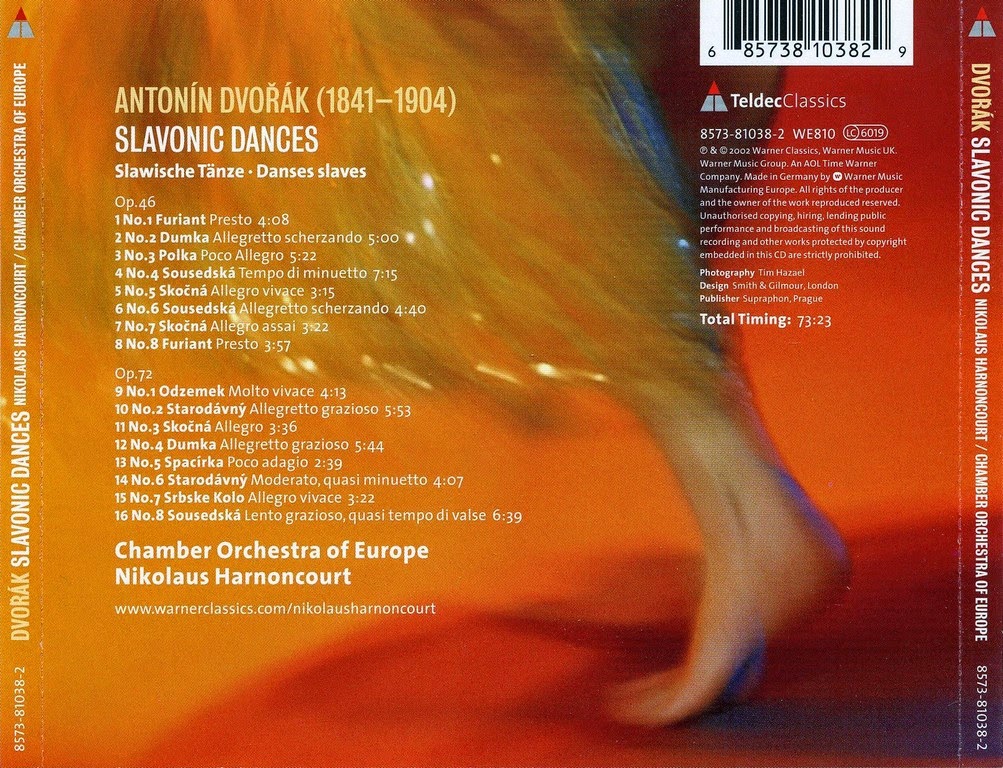"As might be expected from Harnoncourt, this isn't "just another" recording of the Slavonic Dances--but neither is it interpretively perverse in an off-putting way. The recording it most resembles is Szell's, not so much in terms of tempo, but with respect both to Harnoncourt's ability to characterize each dance fully and his willingness to tinker in small ways with balances and the letter of the score (as in the percussion parts in the Op. 46 No. 1) for maximum effect. In general, Harnoncourt opts for extremes of speed, especially in those dances--such as Op. 46 Nos. 2 and 3, or Op. 72 No. 5--that display alternating fast and slow sections.
Accordingly, my only (minor) criticism of this performance is that by exaggerating this fact Harnoncourt's tactics become somewhat predictable when listening to all 16 numbers at a sitting. You, however, may not share this concern and will just get carried away by the excitement of it all.
There's no question that emphasizing the music's mood shifts and general volatility pays big dividends, say, in the last two dances of Op. 46, which fairly bristle with rhythmic energy and high spirits. It's also worthwhile to note the traps that Harnoncourt does not fall into, such as the "semi-traditional" exaggerated ritard on those emphatic two-chord bangs that feature so prominently in Op. 72 No. 3. He also turns in an appealingly punchy view of No. 6 in the latter opus and offers a controversially fast conclusion whose wide gear-shifts may raise a few eyebrows. No matter: it's all freshly imagined, fabulously played, excellently recorded, and all in all makes a wholly convincing case for yet another recording of these imperishable musical gems." --David Hurwitz, ClassicsToday.com
There's no question that emphasizing the music's mood shifts and general volatility pays big dividends, say, in the last two dances of Op. 46, which fairly bristle with rhythmic energy and high spirits. It's also worthwhile to note the traps that Harnoncourt does not fall into, such as the "semi-traditional" exaggerated ritard on those emphatic two-chord bangs that feature so prominently in Op. 72 No. 3. He also turns in an appealingly punchy view of No. 6 in the latter opus and offers a controversially fast conclusion whose wide gear-shifts may raise a few eyebrows. No matter: it's all freshly imagined, fabulously played, excellently recorded, and all in all makes a wholly convincing case for yet another recording of these imperishable musical gems." --David Hurwitz, ClassicsToday.com
Tags:
Dvořák Antonín


